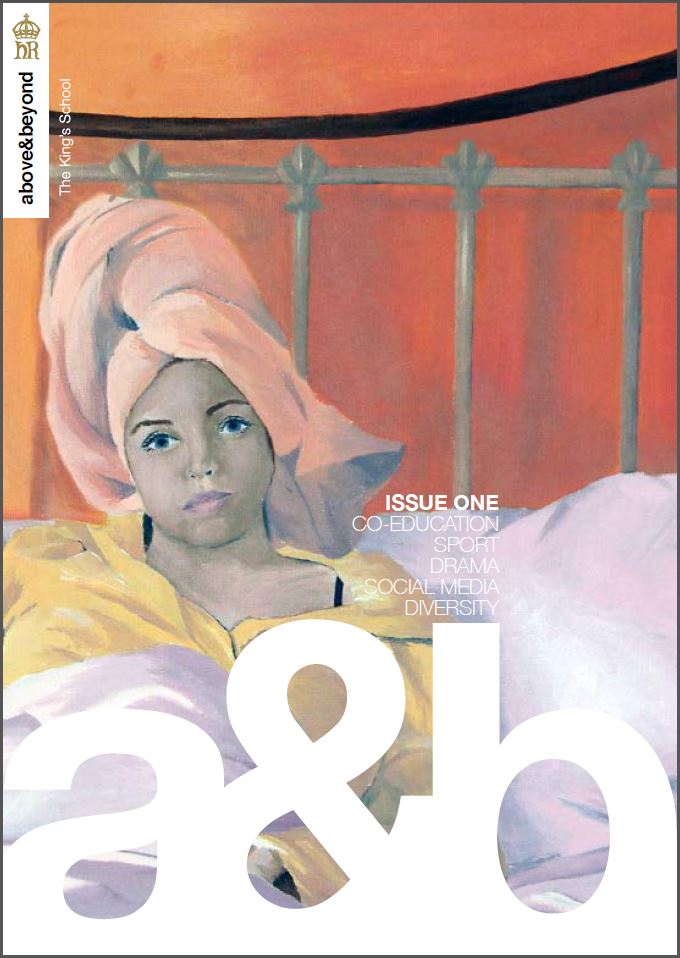
Above & Beyond is a new magazine written by members of the King’s community, that sets out to highlight and discuss the key educational topics of the day.
Each month, we will feature an article from Above & Beyond, which aims to inform, entertain and, in many cases, challenge conventional thinking around the education and development of young people.
First up, our Deputy Head (Pastoral) Michael Harle discusses the issues of children and their interaction with technology and social media.
Making the Mobile Connection: Kids, Parents, Schools and Social Media
By Michael Harle, Deputy Head (Pastoral)
When I was a child I watched a programme called Space 1999. This was a science fiction series about the colonisation of the moon, and it featured all the clichés you’d expect; Star Wars style spacecraft, aliens, laser guns and so on.
What it also featured, rather than the high-tech communicators favoured by Star Trek, was good old hard-wired landline telephones. Leaving aside this slightly anachronistic detail, it’s sobering to remember that most people under the age of 25, besides not knowing much about Space 1999, have never even used an old style hard-wired telephone.
Most children, meanwhile, would think of a landline as an inconvenient means of connecting to the internet, rather than the local telephone exchange. Within that historical context there are two undeniable facts which have to be faced. The first is that mobile and smart phones are here to stay and they will only get more powerful as time passes. Indeed, within the next 10 years such technology will advance to include more wearable and even biologically integral components. From a smart fridge making a shopping list to a device which monitors blood pressure and heart rate, smart devices will play a part in virtually every aspect of life.
The second fact is that we want these devices. We can’t blame the phone designers, the software engineers, the app designers or even the internet service providers. Bodies of this kind are not – despite occasional hacking or data gathering scandals – inherently malevolent, they are simply providing us with a product. We buy, they deliver. They innovate and we willingly consume.
Accepting this places us in a position of real power and it is important that our children understand their position in this market, and the degree of control which it offers. Once they do, then they can make choices based on their own moral leanings, rather than simply placing responsibility with ‘market forces’ and viewing themselves as hapless or even helpless victims. In turn we, as adults, need to take a lead and be the change that we want to see. We can look up from our screens and engage with our children. We can take a positive interest in their online lives. We can become more tech savvy than our children and help them to navigate the world as it is, rather than as it was when we were young. In other words, we can take the kind of protective lead which we do in all other walks of life.
Lifelong learning is a reality and we are preparing our children to enjoy the challenges of multiple careers. Is it too much to ask of ourselves that we take the same approach to learning and ensure that we maintain a level of knowledge that keeps us ahead of our children? Mobile technologies are seductive and their power to addict is both psychological and physiological. Children have always needed care and commitment and we should not shirk our responsibility when the stakes are so high.
The first edition of Above & Beyond is available from Senior School reception.















